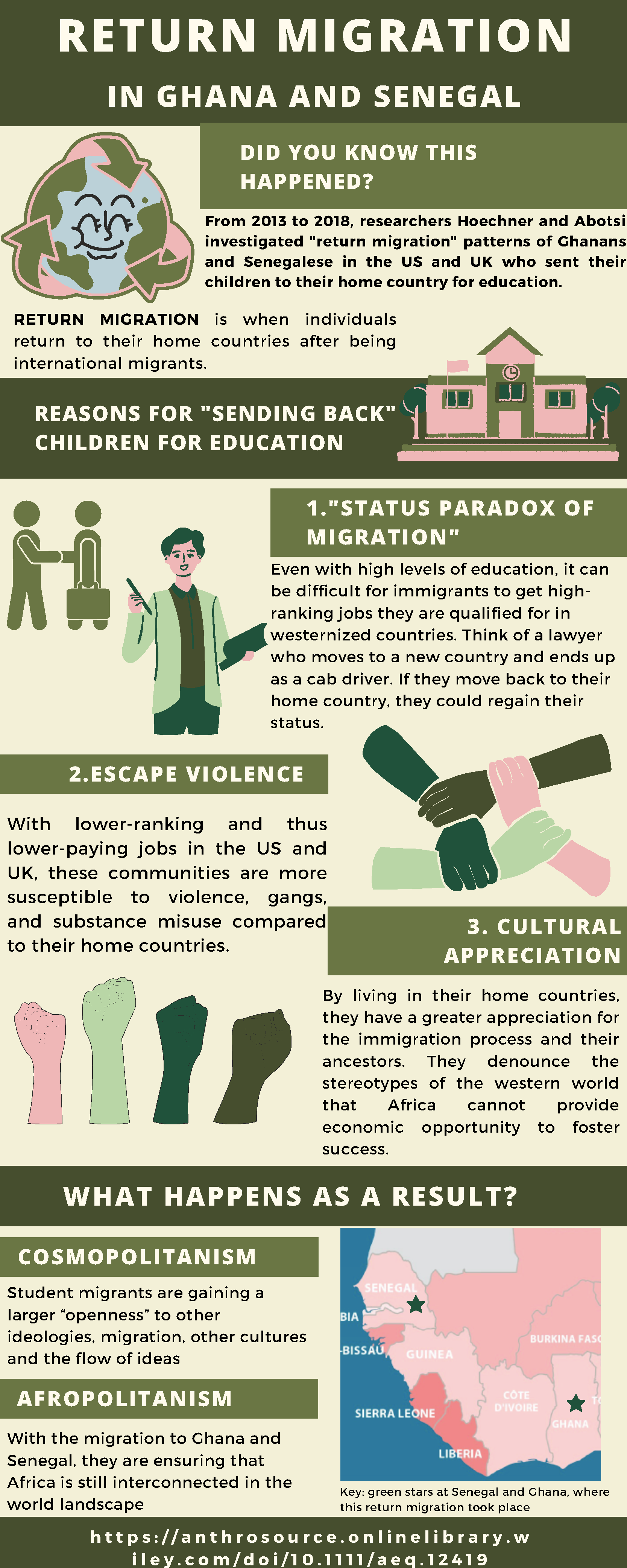Return Migration in Ghana and Senegal
Adapted by Riya Mukherjee
June 2022
Original article: “Transnational Migration and Educational Change: Examples of Afropolitan Schooling from Senegal and Ghana” by Emma Abotsi and Hannah Hoechner

Return Migration in Ghana and Senegal
Infographic by: Riya Mukherjee
Did you know this happened? From 2013 to 2018, researchers Hoechner and Abotsi investigated “return migration” patterns of Ghanans and Senegalese in the US and UK who sent their children to their home country for education.
Return migration is when individuals return to their home countries after being international migrants.
Reasons for “Sending Back” Children for Education
- “Status paradox of migration” – Even with high levels of education, it can be difficult for immigrants to get high-ranking jobs they are qualified for in westernized countries. Think of a lawyer who moves to a new country and ends up as a cab driver. If they move back to their home country, they could regain their status.
- Escape violence – With lower-ranking and thus lower-paying jobs in the US and UK, these communities are more susceptible to violence, gangs, and substance misuse compared to their home countries.
- Cultural Appreciation – By living in their home countries, they have a greater appreciation for the immigration process and their ancestors. They denounce the stereotypes of the western world that Africa cannot provide economic opportunity to foster success.
What Happens as a Result?
Cosmopolitanism – Student migrants are gaining a larger “openness” to other ideologies, migration, other cultures and the flow of ideas
Afropolitanism – With the migration to Ghana and Senegal, they are ensuring that Africa is still interconnected in the world landscape
Reference:
Abotsi, E. and Hoechner, H. (2022), Transnational Migration and Educational Change: Examples of Afropolitan Schooling from Senegal and Ghana. Anthropology & Education Quarterly, 53: 376-395. https://doi.org/10.1111/aeq.12419